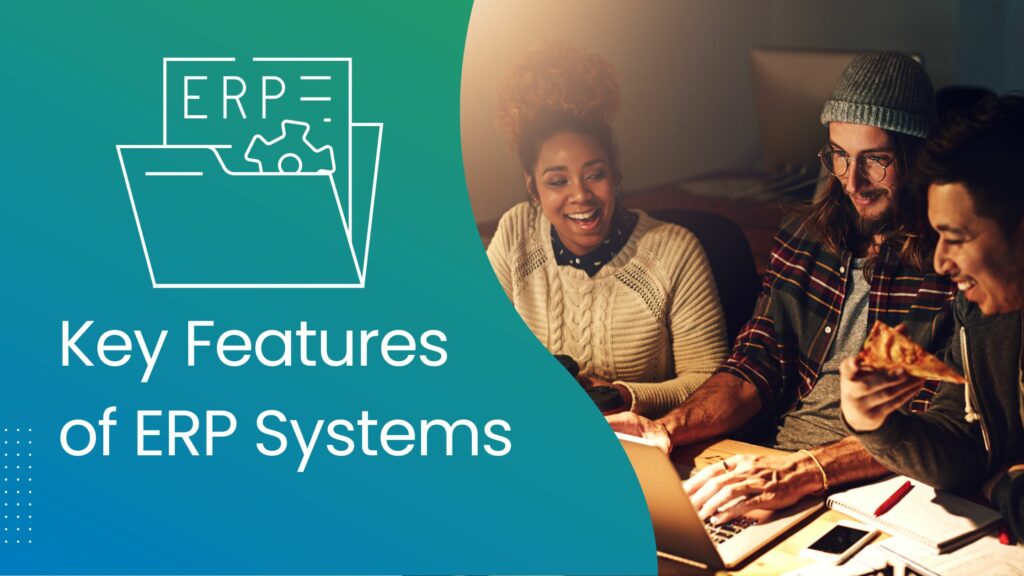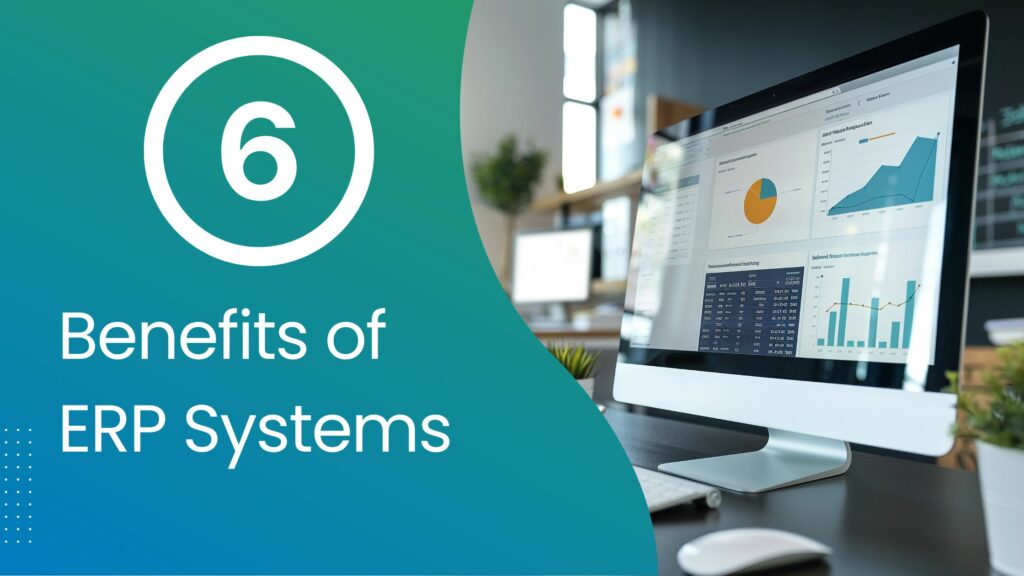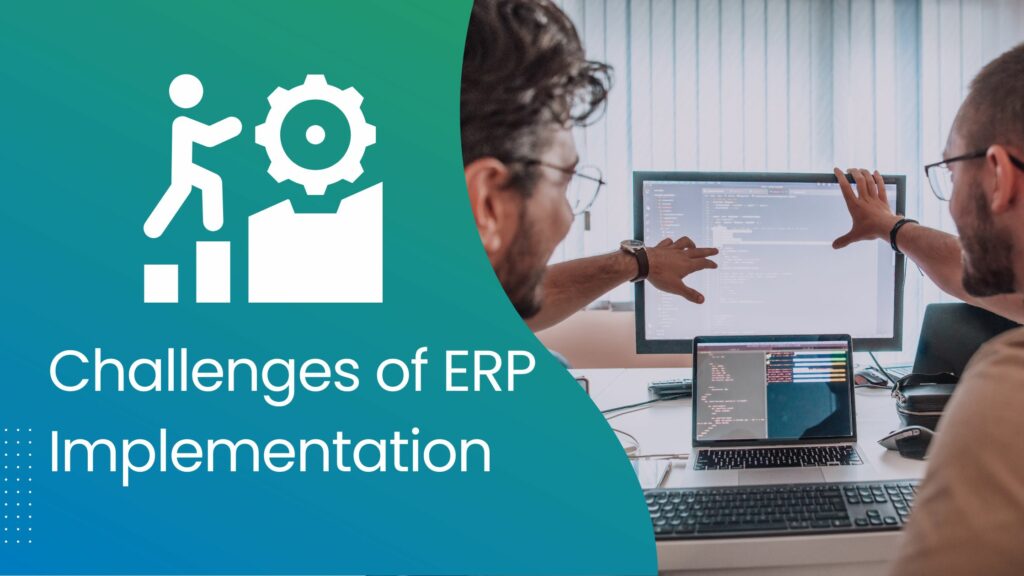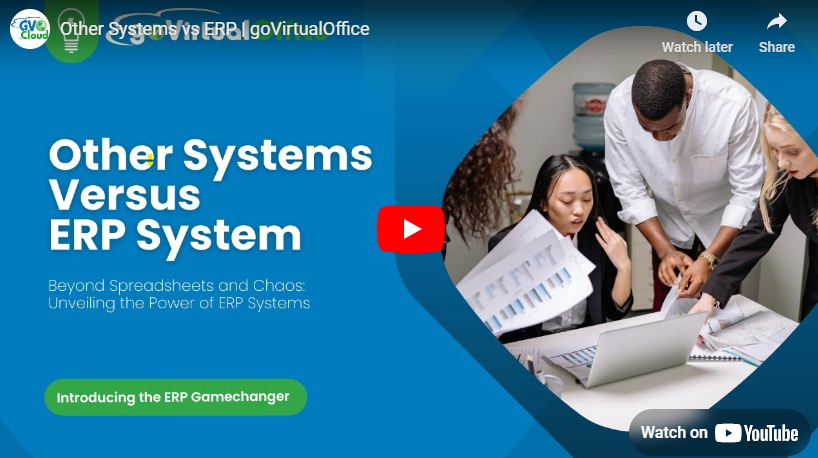In today’s fast-paced and competitive business environment, staying ahead of the curve is essential for success. This is where Enterprise Resource Planning (ERP) systems come into play. As businesses increasingly rely on technology to streamline their operations, ERP systems offer a comprehensive solution to integrate various departments and optimize processes efficiently.
What is ERP?
Enterprise Resource Planning (ERP) is a robust software solution designed to unify and automate core business processes. From financial management and inventory control to supply chain management and customer relationship management (CRM), ERP systems provide a centralized platform that enhances operational efficiency and reduces manual errors. By providing real-time data, ERP empowers businesses to make smarter decisions and maintain a competitive edge.

Key Features of ERP Systems
Centralized Data Management
ERP systems consolidate data from all business functions into a single database. This eliminates data silos, ensuring that everyone in the organization has access to up-to-date and consistent information.
Process Automation
By automating repetitive tasks such as order processing, invoicing, and payroll, ERP systems reduce manual workload and minimize errors, allowing employees to focus on more strategic activities.
Scalability and Flexibility
Modern ERP solutions are highly scalable, making them suitable for businesses of all sizes, from small startups to large enterprises. As your business grows, ERP systems can adapt, accommodating more users, transactions, and data without sacrificing performance.
Customization and Integration
ERP systems are highly customizable, allowing businesses to tailor the software to their specific needs. They can also integrate with other existing tools and software, providing a seamless flow of information across platforms.
Ready to streamline your business operations and boost efficiency?
Discover how our ERP solutions can transform your business. Contact us today for a free consultation and see how ERP can work for you!

Benefits of ERP Systems
- Enhanced Efficiency: By automating routine tasks, ERP systems eliminate inefficiencies and manual errors, significantly improving productivity. This automation ensures that business processes run smoothly and efficiently.
- Real-Time Insights: ERP systems provide real-time data and analytics, allowing businesses to make well-informed decisions. Access to critical data helps companies track key performance indicators (KPIs), identify trends, and respond swiftly to market changes.
- Improved Collaboration: ERP systems enhance collaboration across departments by providing a unified platform where information is easily accessible. This leads to better coordination and streamlined communication within the organization.
- Increased Customer Satisfaction: By integrating CRM functionalities, ERP systems improve customer interactions and service delivery. Businesses can manage customer data more effectively, leading to higher customer satisfaction and loyalty.
- Better Financial Management: ERP systems offer robust financial management tools that assist in budgeting, forecasting, and financial reporting. This helps businesses maintain financial control and plan for future growth.
- Regulatory Compliance: ERP systems help businesses stay compliant with industry standards and government regulations by maintaining accurate records and providing audit trails. This reduces the risk of non-compliance and potential penalties.
Why Implement an ERP System?
Implementing an ERP system not only boosts operational efficiency but also enhances customer satisfaction and drives profitability. With comprehensive access to critical data, businesses can plan strategically, respond to market dynamics, and position themselves for long-term success. ERP systems also facilitate better inventory management, reducing waste and ensuring that products are available when customers need them.

Challenges of ERP Implementation
High Initial Costs
Implementing an ERP system can be expensive due to software costs, training, and customization. However, the long-term benefits often outweigh the initial investment.
Change Management
Transitioning to an ERP system requires a change in how employees work. Proper training and change management strategies are essential to ensure smooth adoption.
Data Migration
Moving existing data into a new ERP system can be complex and time-consuming. Ensuring data accuracy during this process is crucial to avoid disruptions.
System Maintenance
Continuous updates and maintenance are required to keep the ERP system running optimally. This includes software updates, security patches, and hardware upgrades.
Ready to streamline your business operations and boost efficiency?
Discover how our ERP solutions can transform your business. Contact us today for a free consultation and see how ERP can work for you!
Conclusion
Embracing the power of Enterprise Resource Planning (ERP) can revolutionize your business operations. By streamlining processes, improving productivity, and facilitating better decision-making, ERP systems help companies drive growth, increase profitability, and stay ahead in today’s dynamic marketplace. Investing in ERP is not just a technological upgrade; it's a strategic move towards a more efficient and successful business.
Frequently Asked Questions About Enterprise Resource Planning (ERP)
1. What is an ERP system, and how does it work?
An ERP (Enterprise Resource Planning) system is a software solution that integrates various business functions into a single, unified platform. It works by centralizing data from departments such as finance, inventory, sales, and human resources, enabling seamless communication and efficient process management across the organization.
2. What types of businesses can benefit from an ERP system?
ERP systems are beneficial for businesses of all sizes and industries, including manufacturing, retail, healthcare, and services. Whether you're a small business looking to improve inventory management or a large enterprise needing to streamline complex processes, ERP can be tailored to meet your needs.
3. How long does it take to implement an ERP system?
The implementation timeline for an ERP system varies depending on the complexity of the business processes, the level of customization required, and the size of the organization. On average, ERP implementation can take anywhere from a few months to over a year.
4. What are the main challenges of implementing an ERP system?
Common challenges include high initial costs, resistance to change among employees, data migration complexities, and the need for continuous training and maintenance. Proper planning and change management strategies can help mitigate these challenges.
5. How can ERP improve financial management?
ERP systems offer tools for budgeting, forecasting, financial reporting, and real-time tracking of financial performance. This helps businesses maintain financial control, ensure compliance with regulations, and make data-driven decisions to optimize profitability.
6. Is an ERP system secure?
Yes, modern ERP systems are designed with robust security features, including data encryption, user authentication, and access controls to protect sensitive business information. Regular updates and security patches are essential to maintain system integrity.
7. Can ERP systems be customized to suit specific business needs?
Yes, ERP systems are highly customizable. Businesses can tailor modules, workflows, and reports to fit their unique processes and requirements, ensuring the ERP system aligns with their specific operational goals.
8. What are the costs associated with ERP implementation?
Costs vary depending on the ERP software chosen, the number of users, customization needs, and implementation services. Initial costs typically include software licensing, training, and system integration. While upfront costs can be high, the long-term benefits often provide a significant return on investment.
9. How does ERP improve customer satisfaction?
ERP systems improve customer satisfaction by integrating CRM functionalities that enhance customer interactions, streamline order processing, and ensure timely delivery. By having real-time access to customer data, businesses can provide better service and build stronger relationships.
10. How do I know if my business needs an ERP system?
If your business struggles with data silos, manual errors, inefficient processes, or lacks real-time insights into operations, it may be time to consider an ERP system. ERP helps businesses grow by providing a unified platform for better decision-making and operational control.
Looking to take your business to the next level?
Streamline your operations, improve efficiency, and drive growth with our powerful ERP solutions. Let us help you eliminate manual errors, enhance collaboration, and gain real-time insights for smarter decision-making.

)





